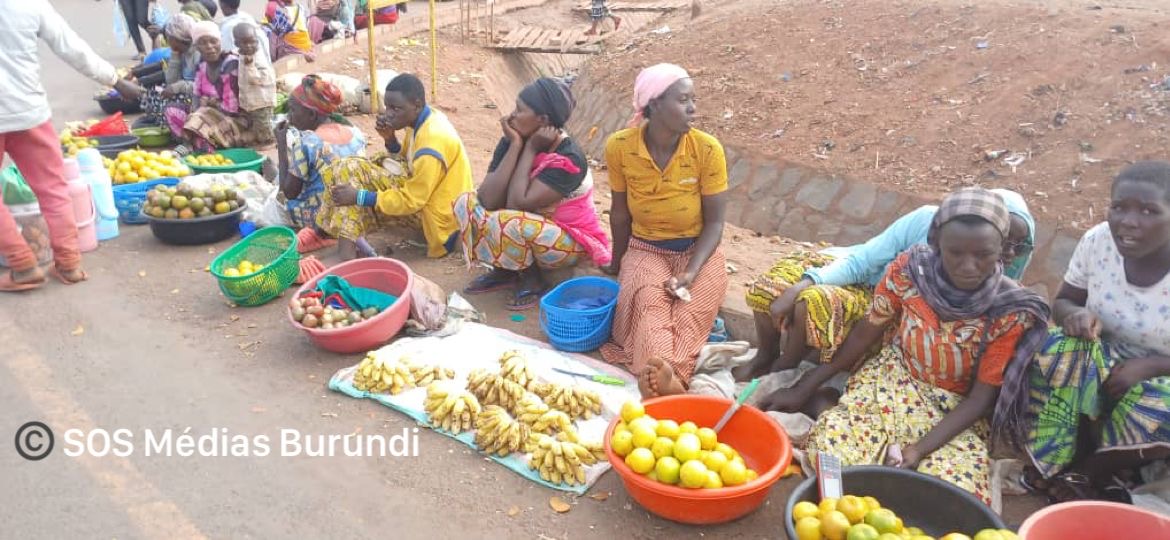Gitega : street vendors fight for survival in the face of police repression

SOS Médias Burundi
Gitega, July 15, 2025 – In the bustling streets of downtown Gitega, the political capital of Burundi, dozens of women selling fruit, vegetables, and grilled corn face increasing poverty every day. Trying to make a living on the sly, they are regularly targeted by brutal police interventions.
In the shadow of major political decisions, these women fight every day to feed their families, at the cost of their safety and dignity.
« The police often come and chase us away, and we are forced to flee. » « Our fruit ends up scattered in the street, others are picked up by passersby, and some are loaded into trucks to be taken to the police station, » says Georgette Ndayishimiye, a mother of two, sitting at the entrance to the central market.
Police repression and violence
These operations often involve physical and verbal violence, according to several testimonies collected on site.
« We are beaten, mistreated, with no alternative. We don’t have the capital to rent stalls at the market, » explains Alice Nshimirimana, a 40-year-old widow and mother of four. She sells produce in the working-class neighborhood of Nyamugari, on the outskirts of the city center.
This paradox is all the more striking given that, despite their informal situation, these traders pay 500 Burundi francs a day in district taxes, which are paid to mobile collectors sent by the city hall. This payment is perceived as implicit legitimization of their activity, even in the absence of protection.
Living on credit under threat
For many of these women, every day is a battle for survival. Without access to formal credit, they borrow from wholesalers or small lenders to purchase their goods.
« We buy on credit every morning and pay it back in the evening. We’re barely surviving, » confides Scholastique Bukuru, another widow from Bwoga village, south of Gitega.
She says she’s noticed an unusual lull in police raids in recent days, which she attributes to the electoral context.
« It’s not out of love for us. It’s a strategy to coax us into voting for their candidates. After the elections, the repression will resume. »
Overwhelmed associations
Several women’s rights associations are trying to intervene, but are severely underfunded.
« They live in extreme vulnerability, yet funding to help them start formal businesses is almost nonexistent, » laments Claudette Niyonizigiye, head of the DUSHIREHAMWE organization, which promotes women’s empowerment.
The tone is quite different among local authorities. Hussein Butoyi, head of the Gitega urban area, is responsible for operations against street vendors.
« These women block access to strategic locations such as bakeries, grocery stores, and even entrances to the central market. This causes traffic jams and accidents. »
He encourages them to enter official markets, believing it is the only possible path to regulated trade.
An invisible struggle in the informal economy
Between baton blows, theft of goods, and lack of recognition, the women street vendors of Gitega represent one of the most overlooked faces of the informal economy. They are mothers, widows, displaced people, or survivors of past crises, and find street trading a lifeline.
In the absence of sustainable solutions or inclusive policies, they will continue to juggle economic survival and repression, hoping that one day their work will finally be recognized as a full-fledged driver of the local economy.

